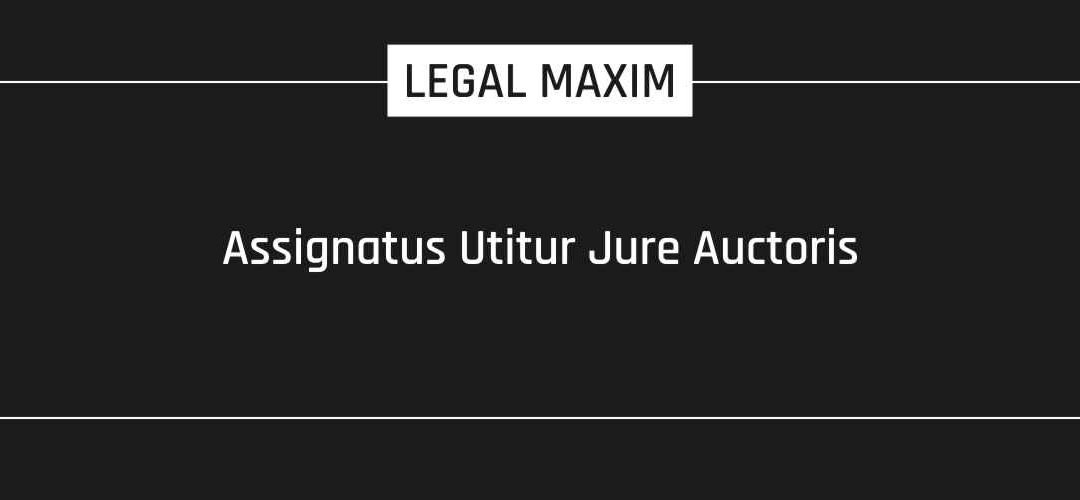Literal Meaning
An assignee is clothed with the rights of his assignor
Origin
Latin
Explanation
The legal principle implies that the assignor has all the privileges of the individual they serve, but the interest of the delegated subject is restricted to an amount equivalent to or less than the worth of the subject matter. In other words, one cannot assign, or have the same rights of their principal in the case of an assignment, if the purported assignment of property is greater than the value of what it is worth. A person cannot assign what they do not have. Once the rights have been assigned a person becomes entitled to the rights and to the actions at law by which that right may be enforced. It describes an assignor being conferred the rights of his principal.
Case Laws
The Bombay High Court in Taparia Overseas (P) Ltd. And Anr. Vs. Union of India (Uoi) And Ors., while discussing the above maxim held that “This maxim applies generally to all property, real and personal, and refers to assigns by the act of parties, as where the assignment is by deed; and to assigns by operation of law, as in the case of an executor. All rights of the assignor in the thing assigned must pass from him to the assignee by virtue of the assignment, for duo non possunt in solido unam rem possidere. It should be observed, also that the thing assigned takes with it all the liabilities attached to it in the hands of the assignor at the time of the assignment, except in cases for the encouragement of commerce, such as sales in the market overt, negotiation of promissory notes, bills of exchange, etc., and, in the case of inquiries, where the assignee is a bona fide purchaser for value without notice.”
Similarly, the Bombay High Court in Oriental Metal Pressing Works vs. Bhaskar Kashinath Thakoor held that “An assignee is clothed only with the right of his principal. Now, these maxims pithily express one of the leading rules as to titles and tersely states the well-known general rule as to titles and tersely states the well-known general rule that no man can transfer a greater right or interest in the property than he himself possesses, and if he has none, he can give no title whatever to the property which is the subject-matter of the transaction.”
